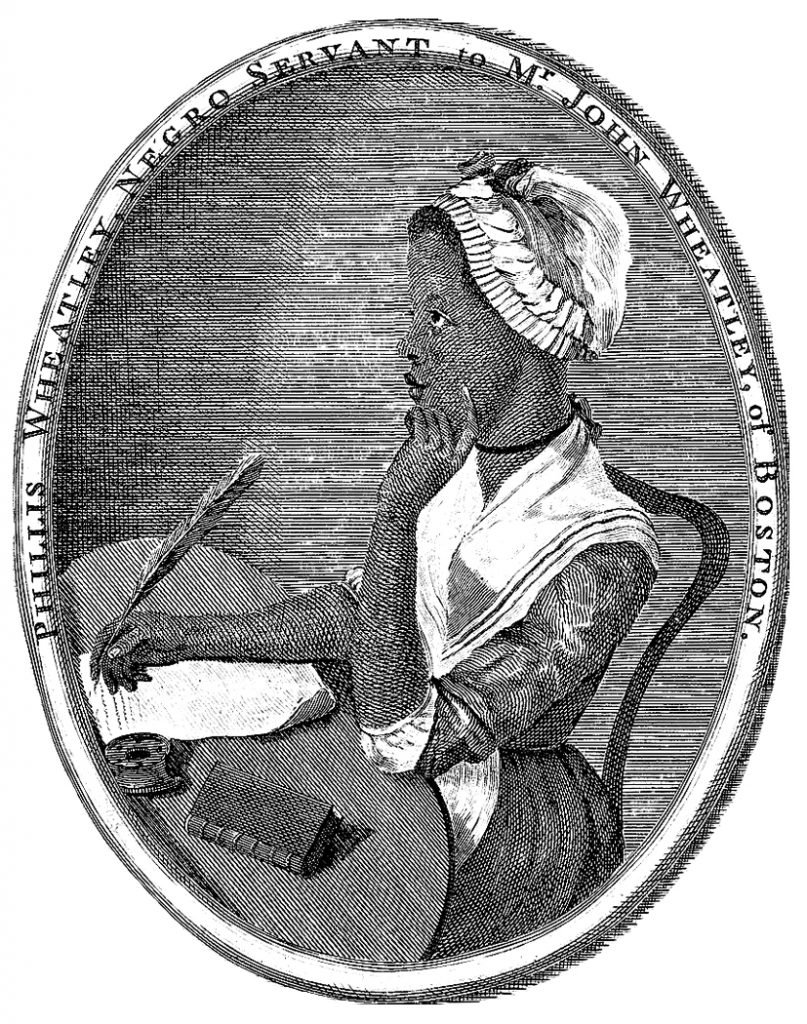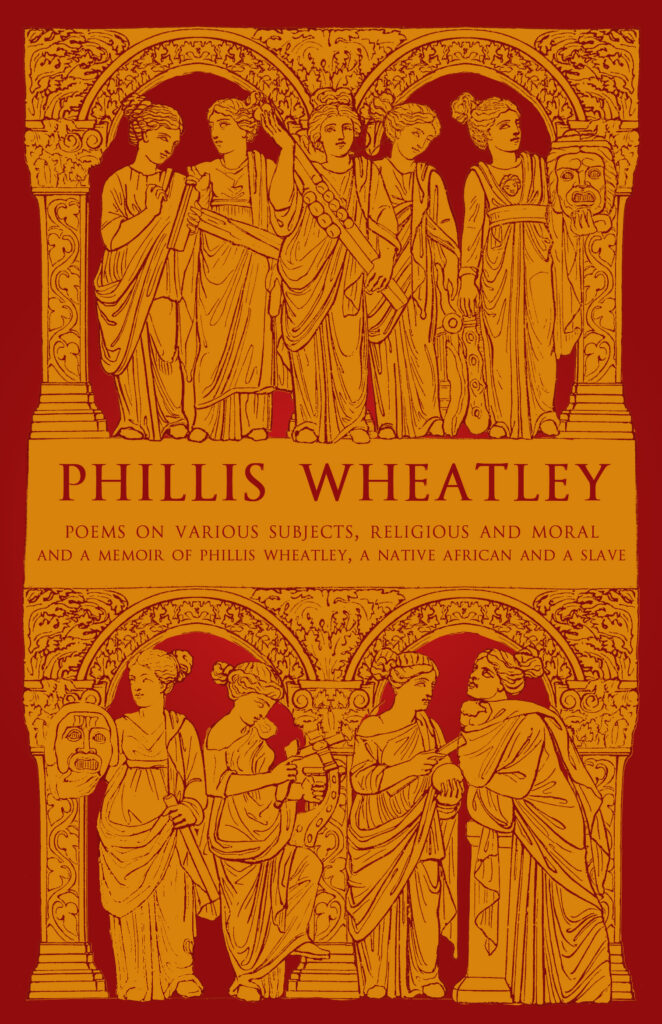Black History Month 2020 – A Note on Phillis Wheatley

Black History Month is a time to look backwards, but also forwards to future possibilities. Against the backdrop of the Black Lives Matter protests this year, we felt it was important that Renard included classics celebrating black history in its list, thereby – as we promised when we set up – fleshing out the literary classics canon with underrepresented voices from across the globe. We are thrilled to be able to celebrate Black History Month with the publication of two ‘firsts’: the first known work by an African American author, and the first book of poetry ever published by an African American writer.
You can find out more about Black History Month here, and you can find Renard Press’ Black History Month collection here.

A Note on Phillis Wheatley
from the Publisher’s ‘Note to the Public’ included in Phillis Wheatley.

The frontispiece from the original edition of the poems
In 1761, a slave ship called The Phillis docked at Boston harbour, having made a slow and tortuous journey from West Africa to the British colony of Massachusetts. On this boat was a seven-year-old girl, who was sold to the well-to-do Wheatley family in Boston; the family’s slaves were growing old, and they wanted a young domestic slave to keep them company in their dotage. Thus Phillis Wheatley was born – renamed after the ship which tore her from her family and the family whose property she became.
Phillis was adored by the family – Susanna Wheatley, in particular – and they helped her to learn English and allowed her to study the classics. Just like Terence, the Roman playwright she writes of, Phillis was brought as a slave to a strange city far from home, and showed such a natural aptitude for language that her owners granted her her freedom.
As related in the 1834 memoir republished in this volume, by Benjamin Bussey Thatcher (1809–40), an outspoken proponent of antislavery, the road to publication was not straight, and early biographers point out that much of Phillis’ poetry may be unknown, since she had such an appetite for writing that she would even do so with chalk on the Wheatleys’ walls, not having the paper to commit her words to. Once her talent became known and the Wheatleys began to encourage her writing, she was met with real disbelief.
In 1772, she was interrogated by a panel and forced to defend the ownership of her own words, since many believed that it was an impossible that she, an African-American slave, could write poetry of such high quality. This view was so prevalent, so acceptable, that the first publisher prefaced the volume of poetry with an ‘attestation from the most respectable characters in Boston, that none might have the least ground for disputing’ their authorship.
In publishing this volume in 2020, moving the attestation of authorship to the end of the book, along with the ‘letter from her master’ and condescending note from the original publishers of the memoir and the poems, it is this Publisher’s fervent hope that the twenty-first-century reader can discover Phillis Wheatley as she should always have been read – as a poet, not property.
– RENARD PRESS, 2020
Poems on Various Subjects, Religious and Moral
and A Memoir of Phillis Wheatley, a Native African and a Slave
128pp paperback
ISBN: 9781913724146
£8.99 £6.29
In 1773, Poems on Various Subjects, Religious and Moral became the first book of poetry by an African-American author to be published. At the tender age of seven, Phillis had been brought to Massachusetts as a slave and sold to the well-to-do Wheatley family. There, she threw herself into education, and soon she was devouring the classics and writing verse with whatever she had to hand – odes in chalk on the walls of the house. Once her talent became known, there was uproar, and in 1772 she was interrogated by a panel of ‘the most respectable characters in Boston’ and forced to defend the ownership of her own words, since many believed that it was an impossible that she, an African-American slave, could write poetry… →
















